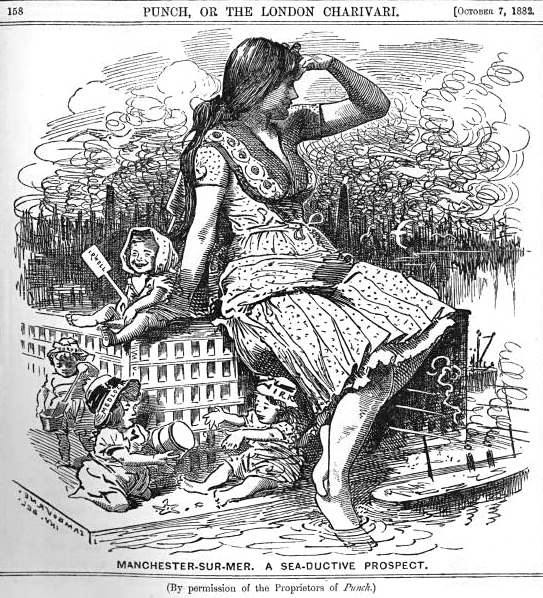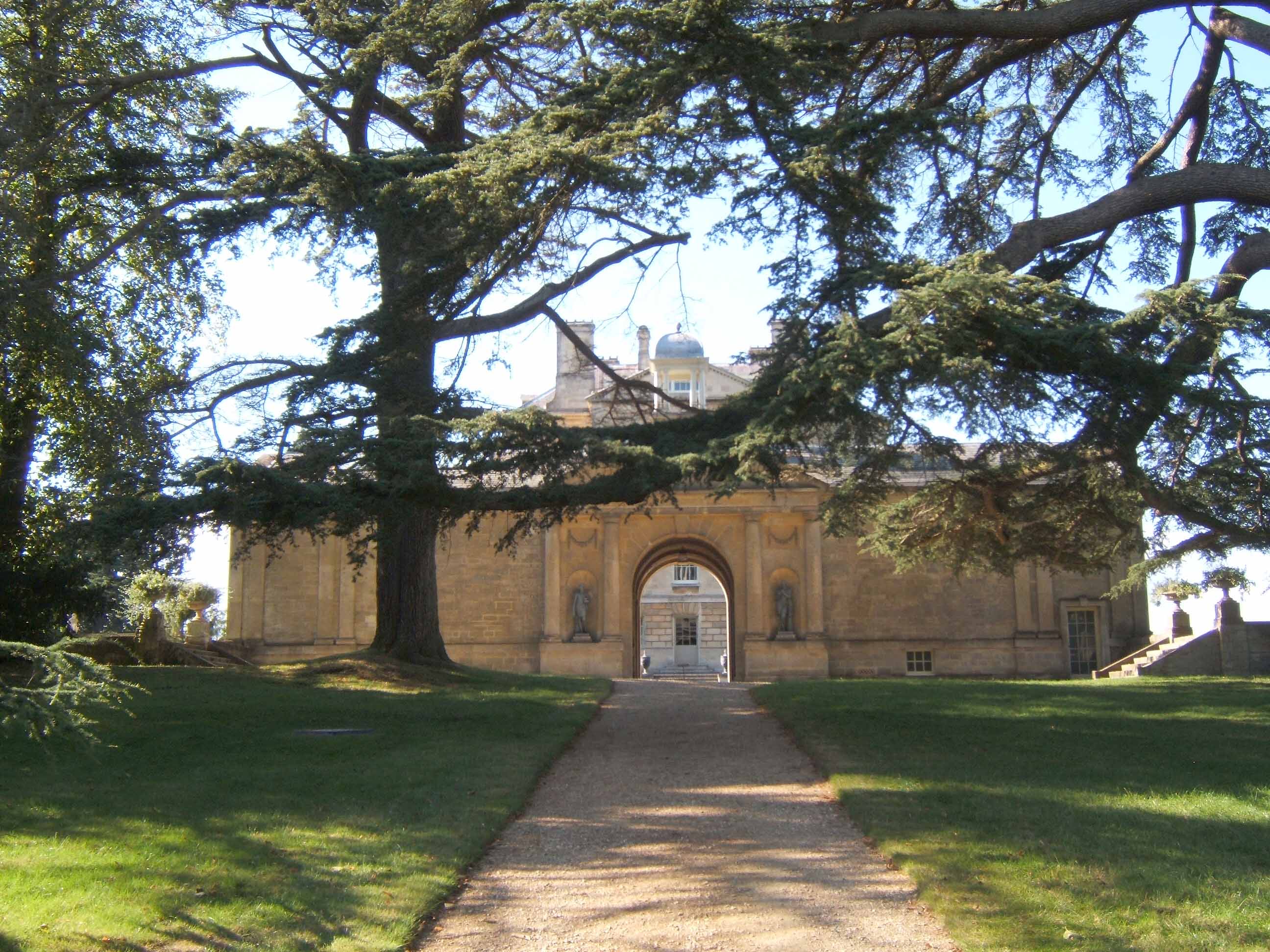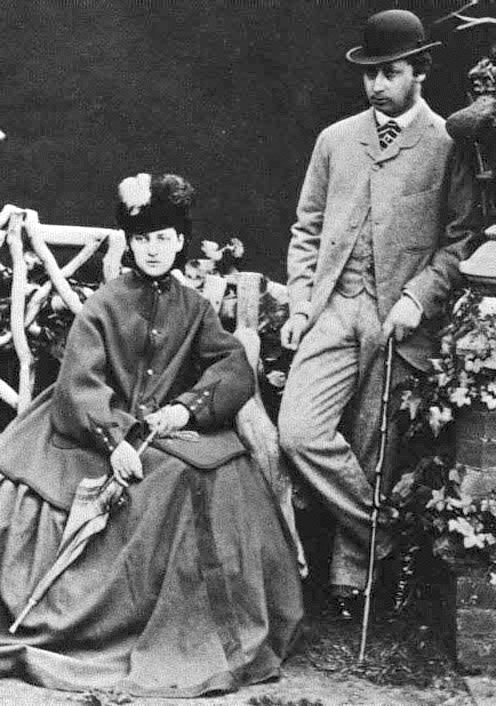|
Alexander Henderson, 1st Baron Faringdon
Alexander Henderson, 1st Baron Faringdon (28 September 1850 – 17 March 1934), known as Sir Alexander Henderson, 1st Baronet, from 1902 to 1916, was a British financier and Liberal Unionist Member of Parliament. Biography Henderson was the son of George Henderson of Langholm, Dumfriesshire. He began his career in the City of London with the accountancy firm Deloitte before becoming a stockbroker. He was best known as a financier of railways in Great Britain and overseas (such as the Algeciras Gibraltar Railway Company), and was chairman of the Great Central Railway (GCR) from 5 May 1899 until the end of 1922, and then deputy chairman of its successor, the London and North Eastern Railway (LNER), from 1923 until his death. He was also a major shareholder in the Manchester Ship Canal and was involved in port developments and telephone and electrical systems in several countries. The Witan Investment Trust was created in 1909 to hold his properties, and the asset management f ... [...More Info...] [...Related Items...] OR: [Wikipedia] [Google] [Baidu] [Amazon] |
The Right Honourable
''The Right Honourable'' (abbreviation: The Rt Hon. or variations) is an honorific Style (form of address), style traditionally applied to certain persons and collective bodies in the United Kingdom, the former British Empire, and the Commonwealth of Nations. The term is predominantly used today as a style associated with the holding of certain senior public offices in the United Kingdom, Canada, New Zealand, and, to a lesser extent, Australia. ''Right'' in this context is an adverb meaning 'very' or 'fully'. Grammatically, ''The Right Honourable'' is an adjectival phrase which gives information about a person. As such, it is not considered correct to apply it in direct address, nor to use it on its own as a title in place of a name; but rather it is used in the Grammatical person, third person along with a name or noun to be modified. ''Right'' may be abbreviated to ''Rt'', and ''Honourable'' to ''Hon.'', or both. ''The'' is sometimes dropped in written abbreviated form, but is ... [...More Info...] [...Related Items...] OR: [Wikipedia] [Google] [Baidu] [Amazon] |
Manchester Ship Canal
The Manchester Ship Canal is a inland waterway in the North West England, North West of England linking Manchester to the Irish Sea. Starting at the River Mersey, Mersey Estuary at Eastham, Merseyside, Eastham, near Ellesmere Port, Cheshire, it generally follows the original routes of the rivers Mersey and River Irwell, Irwell through the Historic counties of England, historic counties of Cheshire and Lancashire before joining the latter at Salford Quays. Several sets of locks lift vessels about to the canal's terminus in Manchester. Landmarks along its route include the Barton Swing Aqueduct, the world's only swing aqueduct, and Trafford Park, the world's first planned industrial estate and one of the largest in Europe. The rivers Mersey and Irwell were first made navigable in the early 18th century. Goods were also transported on the Runcorn extension of the Bridgewater Canal (from 1776) and the Liverpool and Manchester Railway (from 1830) but by the late 19th century the Mer ... [...More Info...] [...Related Items...] OR: [Wikipedia] [Google] [Baidu] [Amazon] |
Harold Henderson (British Politician)
Harold Greenwood Henderson, CVO (29 October 1875 – 1 November 1922), was a British Conservative politician. Early life Born in Brentford, Henderson was the eldest son of Alexander Henderson, 1st Baron Faringdon of Buscot Park in Berkshire (now Oxfordshire), and his wife Jane Ellen (née Davis). He was commissioned a second lieutenant in the 3rd (Militia) Battalion of the Royal Berkshire Regiment on 3 March 1894. He transferred to active service in the British Army when he was appointed a second lieutenant in the 1st Life Guards on 3 February 1897, and was promoted to lieutenant on 2 April 1898. With a detachment from his regiment, he served in the Second Boer War in South Africa 1899–1900, and received the Queen's South Africa Medal (with two clasps). After his return, he was on 6 September 1902 promoted to captain, and appointed adjutant of the regiment. After he resigned from the army, he received an appointment with the Territorial Army in the Berkshire Yeomanry. Poli ... [...More Info...] [...Related Items...] OR: [Wikipedia] [Google] [Baidu] [Amazon] |
Alexander Gavin Henderson, 2nd Baron Faringdon
(Alexander) Gavin Henderson, 2nd Baron Faringdon (20 March 1902 – 29 January 1977) was a British Labour politician and pacifist. He is most known for his charity work, his heavy financial support of medical aid programmes, and for housing 40 child refugees fleeing Franco's forces during the Spanish Civil War. Early and personal life Henderson was the son of Lt-Col. the Hon. Harold Henderson and grew up in Shellingford. He was sent to Eton College, then attended McGill University in Montreal, before graduating from Christ Church, Oxford, in 1924. At Oxford he was part of the Hypocrites' Club. He is considered as one of the group designated by the tabloid press as the 'Bright Young People'. Described by David Cargill as a "roaring pansy", Henderson was known for his effeminate demeanour, once opening a speech in the House of Lords with the words "My dears" instead of "My Lords". Historians have noted how various sources describe Henderson as a homosexual. His marriage, to ... [...More Info...] [...Related Items...] OR: [Wikipedia] [Google] [Baidu] [Amazon] |
Abingdon School
Abingdon School is an independent day and boarding school in Abingdon-on-Thames, Oxfordshire, England. It is the List of the oldest schools in the United Kingdom, twentieth oldest Independent School (UK), independent British school. In May 2024, Abingdon announced it would be Abingdon School#Move to co-education, moving to co-education, and would be fully co-educational by 2030. History The date of Abingdon's foundation is unclear. Some believe the school to have been founded prior to the 12th century by the Benedictine monks of Abingdon Abbey, with a legal document of 1100 listing Richard the Pedagogue as the first headmaster. From its early years, the school used a room in St Nicolas' Church, Abingdon, St Nicolas' Church, which itself was built between 1121 and 1184.Abingdon School, A Brief History Retrieved 10 ... [...More Info...] [...Related Items...] OR: [Wikipedia] [Google] [Baidu] [Amazon] |
Oxfordshire
Oxfordshire ( ; abbreviated ''Oxon'') is a ceremonial county in South East England. The county is bordered by Northamptonshire and Warwickshire to the north, Buckinghamshire to the east, Berkshire to the south, and Wiltshire and Gloucestershire to the west. The city of Oxford is the largest settlement and county town. The county is largely rural, with an area of and a population of 691,667. After Oxford (162,100), the largest settlements are Banbury (54,355) and Abingdon-on-Thames (37,931). For local government purposes Oxfordshire is a non-metropolitan county with five districts. The part of the county south of the River Thames, largely corresponding to the Vale of White Horse district, was historically part of Berkshire. The lowlands in the centre of the county are crossed by the River Thames and its tributaries, the valleys of which are separated by low hills. The south contains parts of the Berkshire Downs and Chiltern Hills, and the north-west includes part o ... [...More Info...] [...Related Items...] OR: [Wikipedia] [Google] [Baidu] [Amazon] |
Buscot Park
Buscot Park is a English country house, country house at Buscot near the town of Faringdon in Oxfordshire within the historic boundaries of Berkshire. It is a Grade II* listed building. It was built in an austere Neoclassical architecture, neoclassical style between 1780 and 1783 for Edward Loveden Loveden. It remained in the family until sold in 1859 to Robert Tertius Campbell, an Australian. Campbell's daughter Florence would later be famous as Mrs Charles Bravo, the central character in a Victorian murder case that remains unsolved to this day. On Campbell's death, in 1887, the house and its estate were sold to Alexander Henderson, 1st Baron Faringdon, Alexander Henderson a financier, later to be ennobled as Baron Faringdon. Following the death of the 1st Baron in 1934, the house was considerably altered and restored to its 18th-century form, by the architect Geddes Hyslop, for his grandson and successor, Gavin Henderson, 2nd Baron Faringdon, during this era, the art collect ... [...More Info...] [...Related Items...] OR: [Wikipedia] [Google] [Baidu] [Amazon] |
Baron Faringdon
Baron Faringdon, of Buscot Park in the County of Berkshire, is a title in the Peerage of the United Kingdom. It was created in 1916 for Alexander Henderson, 1st Baron Faringdon, Sir Alexander Henderson, 1st Baronet, who had previously represented Stafford West (UK Parliament constituency), Stafford West and Westminster St George's (UK Parliament constituency), St George's, Hanover Square in the British House of Commons, House of Commons as a Liberal Unionist. He had already been created a baronet in 1902. He was succeeded by his grandson, the second Baron. He was the son of the Hon. Harold Henderson (British politician), Harold Henderson, eldest son of the first Baron, who predeceased his father. Lord Faringdon was a member of the London County Council. the titles are held by his nephew, the third Baron, who succeeded in 1977. He is the son of the Hon. Michael Thomas Handerson, second son of the Hon. Harold Henderson. The family seat is Buscot Park, near Faringdon, Oxfordshire. ... [...More Info...] [...Related Items...] OR: [Wikipedia] [Google] [Baidu] [Amazon] |
High Sheriff Of Berkshire
The High Sheriff of Berkshire, in common with other counties, was originally the King's representative on taxation upholding the law in Anglo-Saxons, Saxon times. The word Sheriff evolved from 'shire-reeve'. The title of High Sheriff#United Kingdom, High Sheriff is therefore much older than the other crown appointment, the Lord Lieutenant of Berkshire, which came about after 1545. Between 1248 and 1566, Berkshire and Oxfordshire formed a joint shrievalty (apart from a brief period in 1258/1259). See High Sheriff of Oxfordshire. Unlike the Lord Lieutenant of Berkshire, which is generally held from appointment until the holder's death or incapacity, the title of High Sheriff is appointed / reappointed annually. The High Sheriff is assisted by an Under-Sheriff of Berkshire. List of High Sheriffs of Berkshire 1248–1566 See High Sheriff of Berkshire and Oxfordshire for incumbents during this period. (From 3 November 1258 to Michaelmas 1259, Nicholas de Hendred was sheriff for B ... [...More Info...] [...Related Items...] OR: [Wikipedia] [Google] [Baidu] [Amazon] |
Baronetcy
A baronet ( or ; abbreviated Bart or Bt) or the female equivalent, a baronetess (, , or ; abbreviation Btss), is the holder of a baronetcy, a hereditary title awarded by the British Crown. The title of baronet is mentioned as early as the 14th century; however, in its current usage it was created by James I of England in 1611 as a means of raising funds for the crown. Baronets rank below barons, but seemingly above all knights grand cross, knights commander and knights bachelor of the British chivalric orders, that are in turn below in chivalric precedence than the most senior British chivalric orders of the Garter and the Thistle. Like all British knights, baronets are addressed as "Sir" and baronetesses as "Dame". They are conventionally seen to belong to the lesser nobility, although William Thoms in 1844 wrote that: The precise quality of this dignity is not yet fully determined, some holding it to be the head of the , while others, again, rank Baronets as the lowest ... [...More Info...] [...Related Items...] OR: [Wikipedia] [Google] [Baidu] [Amazon] |
King Edward VII
Edward VII (Albert Edward; 9 November 1841 – 6 May 1910) was King of the United Kingdom and the British Dominions, and Emperor of India, from 22 January 1901 until his death in 1910. The second child and eldest son of Queen Victoria and Prince Albert of Saxe-Coburg and Gotha, Edward, nicknamed "Bertie", was related to royalty throughout Europe. He was Prince of Wales and heir apparent to the British throne for almost 60 years. During his mother's reign, he was largely excluded from political influence and came to personify the fashionable, leisured elite. He married Princess Alexandra of Denmark in 1863, and the couple had six children. As Prince of Wales, Edward travelled throughout Britain performing ceremonial public duties and represented Britain on visits abroad. His tours of North America in 1860 and of the Indian subcontinent in 1875 proved popular successes. Despite the approval of the public, his reputation as a playboy prince soured his relationship with his mo ... [...More Info...] [...Related Items...] OR: [Wikipedia] [Google] [Baidu] [Amazon] |
1902 Coronation Honours
The 1902 Coronation Honours were announced on 26 June 1902, the date originally set for the coronation of King Edward VII. The coronation was postponed because the King had been taken ill two days before, but he ordered that the honours list should be published on that day anyway. The list included appointments to various orders and honours of the United Kingdom and British India, and the creation of two new decorations: * the Order of Merit * the Imperial Service Order The first Companions of the Imperial Service Orders were not announced until the following November Birthday Honours list, however. There were also some promotions and appointments in the British Army announced in the list. The honours were covered in the press at the time, including in ''The Times'' on the day, but formal announcements in the ''London Gazette'' were spread out over the following months, in gazettes dated 26 June 1902, 11 July 1902, 18 July 1902, 22 July 1902, 25 July 1902, and 2 September 19 ... [...More Info...] [...Related Items...] OR: [Wikipedia] [Google] [Baidu] [Amazon] |





